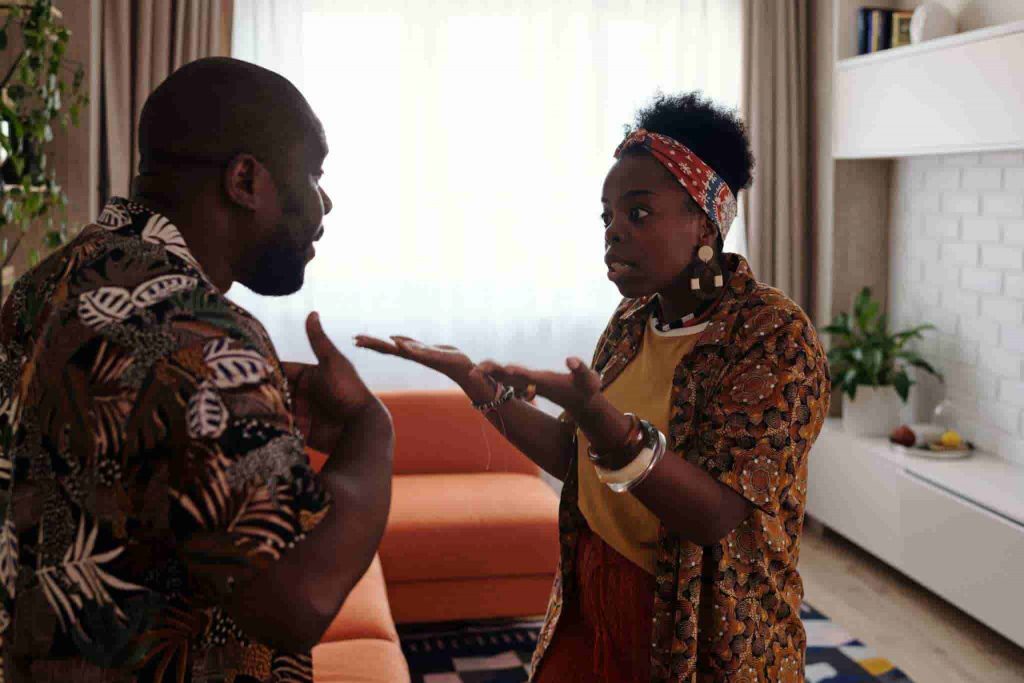10 Tips To Defend Yourself Against False Accusations In A Relationship

There comes a time when we jump to conclusions without knowing the full story. It’s almost like a shortcut that we take to navigate difficult situations. However, this is not always accurate and any false accusations we make can go too far to hurt others around us.
Most people believe these thoughts and conclusions, although cognitive biases may be involved. So how do you handle false accusations when you’re the victim? How can you defend yourself against these false accusations in your relationship?
False accusations can break a relationship and cause heartbreak that can alter the course of future relationships. Knowing how to defend yourself against false accusations can be challenging but here are a few tips to help you prove your innocence when falsely accused.
What Do False Accusations Look Like?

APA defines false accusations as an event, “when it’s impossible to establish a clear link between actions or inactions of the accused and the damage endured by the accuser.” This definition also holds when we talk about the subsequent effects of being falsely accused.
The psychological effects of being falsely accused can be deep and leave long-lasting emotional scars on the accused.
When you’re falsely accused of, say, for example, lying to your partner, this event usually says more about your partner than you. It could be a defense mechanism from your partner’s end to mask their insecurity. Maybe you’ve been busy with other projects at work and your routine has changed, however, your partner does not understand that. Maybe they have an anxious attachment style and jump to the wrong conclusion.
This could make you stumble because you’re being falsely accused by someone who is supposed to trust you. When they go against you, it can make your self-esteem take a dip. Another effect of being falsely accused can make you feel like you’re not doing enough for your partner.
This could potentially make you feel emotions beginning with anger, and hurt, ending with eventual sadness. When you’re falsely accused, it can also make you feel guilty even if you haven’t done anything.
Psychological Effects Of False Accusations In A Relationship
Here are some psychological effects of false accusations in a relationship:
1. Your Behavior Changes
One of the most common effects of false accusations is behavioral change. When you’re falsely accused in a relationship, you begin to modify your behavior to tone down the false accusations. For example, to accommodate your partner, you might begin to cut down your social behaviors to avoid being falsely accused.
2. You Begin To Hide The Truth
When you are falsely accused in a relationship, you may begin to hide the truth from your partner or outright lie to protect yourself. For example, if you were meeting your friends for lunch but your partner does not like that, you’d lie to them by telling them that you had taken your lunch alone.
3. You Struggle With Anxiety
Another psychological effect of false accusations in a relationship is anxiety. When you are falsely accused, you begin to stress and learn to walk on eggshells around your partner. Since you never know what mood your partner would be in, you keep to yourself, increasing anxiety around them.
4. You Feel Frustrated
What can you feel if not frustrated when you’re constantly falsely accused of something? Being falsely accused can increase the feelings of frustration and can even make you feel drained of energy when you constantly try to justify your actions to someone who refuses to accept the truth.
5. You Begin To Doubt Yourself
If your partner is a manipulator who falsely accuses you, it can be a gaslighting attempt on their part. This practiced manipulation can make you doubt your version of reality and question yourself. This, in a relationship, can lower your self-confidence and self-identity.
What To Do When Falsely Accused?

When you’re being falsely accused of untrue events, the first step you can take is to ask for some space. This way you can avoid lashing out to your partner in anger and avoid making things worse than they already are.
Moving on from false accusations can be challenging as it destroys trust and regaining trust after that can take a long time.
However, if you’re being falsely accused in a relationship, then here are some things you can do to handle untrue accusations.
1. Take A Step Back
One of the difficult things to do when you’re faced with false accusations is not to react instinctively. Try to listen, take in what’s been said, self-reflect, and then respond. Reacting without thinking can spark arguments and only intensify false accusations. Journaling can help you process your emotions and give you some perspective.
2. Do Not Take The Accusations Personally
I know how difficult it is to not take accusations personally but anything you’re being falsely accused of should be taken as feedback, not an attack on your person. If you take these false accusations personally, then you’ll only increase the risk of increasing the effects of being falsely accused. Try to understand where your partner is coming from. What made them jump to the wrong conclusions?
3. Recognize Your Partner’s Attachment Style
This brings us to the next point aka recognizing your partner’s attachment style. How you interact with your partner depends greatly on the attachment styles you form during childhood. If your partner has an anxious attachment style, then they will always be filled with insecurities and anxiety over abandonment. They may use false accusations as a reason to protect themselves from getting hurt.
4. Identify Your Feelings
To effectively deal with being falsely accused, you need to identify your feelings and emotions as well. This includes being self-aware. When you have self-awareness, you understand your emotions and avoid getting sucked into negativity. Many relationships end because the partners are unable to handle the emotional damage false accusations leave behind.
5. Communicate With Your Partner
Falsely being accused of something you didn’t do can be difficult but talking to your partner about their words can help. Communicating with your partner means helping them and yourself figure out what went wrong and how to fix it. Calmly understand their views before sharing your thoughts. You can take you and your partner away from the confrontation and talk about your mutual needs to fix what’s wrong.
6. Try To Understand Their Perspective
When you’re blamed for something you did not do, it can make things so much harder than they are. You can go around beating yourself for something you didn’t do but it won’t help. Here, you can try to understand your partner’s perspective and reframe your views according to your partner’s perspective. What drove them to word these accusations? What can you do to help them change their perspective?
7. Set Some Boundaries
Remember, false accusations can arise when there’s an apparent lack of boundaries in a relationship. Can someone, even a partner, accuse you of something rather than asking questions and clearing whatever misunderstandings there are? With the right boundaries, you can make sure that your partner understands and values your time and your trust. Without healthy boundaries, there can be no trust.
8. Seek Support From Friends Or Family
When things go wrong, you can always seek support from your friends and family. Your friends and family can give you a reality check and assure you that you are not guilty but innocent of whatever you’re being falsely accused of. These people are the support system that you can lean on whenever confusion clouds your judgment.
9. Respond, Don’t React
Learn to respond and not react when you’re falsely being accused of something in a relationship. Be calm and learn to manage your emotions. Remember, unregulated emotions can make you lash out with anger and escalate the situation for the worse. When you learn how to respond and not react, you can pause and help understand your partner’s perspective better, and then respond by proving your innocence.
10. Seek Professional Support
In a relationship, false accusations can cause a dip in your self-esteem and self-confidence. It can make you doubt yourself more. That’s why it is important to recognize your emotions so they don’t surprise you or overwhelm you. You can learn this by seeking professional help. Therapy approaches such as Acceptance and Commitment Therapy (ACT) can help.
Book Your Therapy Appointment Here
In Conclusion…
Defending yourself against false accusations in a relationship can depend largely on your circumstances and how you fight for your relationship. To handle being falsely accused, take a pause, understand your emotions, and then respond calmly to prove your innocence when falsely accused.
Try journaling, reframing your perspective, and communicating with your partner. You can also reach out to your support system or seek professional help if you need additional support. Either way, you can defend yourself against false accusations with the right steps.
For more, you can connect with us at info@calmsage.com or DM us on social media. You can also share your thoughts with us in the comments section below!
Take care!





















This was just the information I was needing. I feel so lost and alone. I'm always accused of cheating. I hope to find a therapist to help me cope because I can't do this alone.